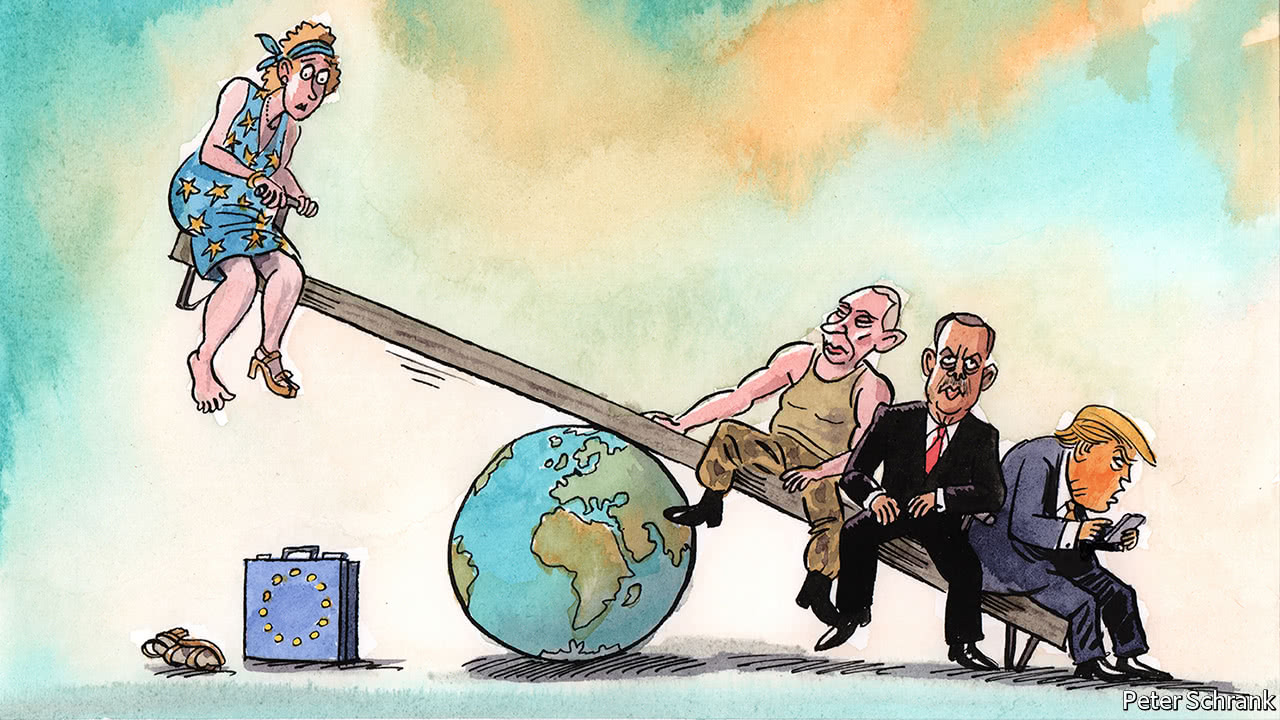OPD: 10 July 2018
A Trade War with Grave Consequences
The trade war between the U.S. and China (both countries have introduced mutual tariffs) is unlikely to end anytime soon. Of course, a conflict of this scale is intimidating, and so phases of escalation and de-escalation await us. These phases may bring with them the appearance of potential compromise, and perhaps a temporary compromise will even be achieved. But the causes of this trade war are fundamental in nature, and they were evident even before the current U.S. administration came into power. Donald Trump’s unique manner of doing business is having an influence on U.S. tactics in this war, but it doesn’t really change anything. If this conflict turns out to be a long-term issue (which it very likely will), it could bring about a crisis with a serious transformative impact on global politics and economics.
If the impact of the American-Chinese trade war is reflected in the price of oil, Russia might suffer as a result of potential short-term global economic turmoil. But overall, this conflict is very useful for Russia and should be viewed as an important strategic opportunity. The crisis will lead to the acceleration of diversified exports of Russian non-energy products to China. It could further increase Chinese interest in pursuing cooperation with Russia in various areas of science and technology – areas in which cooperation with the West may be hindered by new restrictions (the aviation industry, the nuclear industry, space, information technology, etc.).
The trade imbalance between the U.S. and China is in fact only a secondary cause of the burgeoning trade war. That’s because the bilateral trade of goods is only one part of U.S.-China relations – though it’s a big one, to be sure. Another part of the relationship is the “national champions”* in China, such as American transnational businesses and the development of analogous global companies in China. In 2017, just 20 of America’s largest companies with a presence in China achieved revenues of $158 billion, and the U.S. had a significant trade surplus with China of $38 billion.
No less important are China’s attempts to join the technological race in a number of promising areas, including quantum technology, 5G technology and artificial intelligence. Through the massive mobilization of resources on a nationwide scale, China is aiming to become a technology leader in these areas. Technical superiority in these rapidly developing industries can in turn offer the opportunity to play a major role in the development of corresponding technical standards.
Due to the incompatibility of these two countries’ long-term goals and development models, a conflict was inevitable. The era of mutually beneficial relations, in which China’s development was based on supplying low-tech, labor-intensive goods and raw materials to markets in developed countries, has come and gone. China takes advantage of the strength of its political and economic systems to leapfrog its way up value chains, buying up technologies, raw materials suppliers and global brands and capturing new markets. This expansion is financed through the mobilization of resources by the world’s largest economy (by purchasing power parity) and the enormous savings that they have accumulated after decades of rapid economic growth.
Many of these elements of China’s development policy have been clearly evident since the ‘90s, but there are a few reasons that they didn’t previously inspire such an intense U.S. reaction. First, up until the 2010s, the United States was dominated by an ideological belief that a future transformation of the Chinese regime was inevitable and that the result of that transformation would be that China would establish democracy and lose its foreign policy ambitions and that its ability to implement super-projects would be diminished. Second, until relatively recently, a very disparaging assessment of China’s potential in the most promising areas of science and technology prevailed globally – people simply did not believe that these things could work out for the Chinese. Third, for too long the U.S. has been tied up with its adventures in the Middle East and Afghanistan, as well as with its attempts to incite a reaction on the heels of the Ukrainian crisis and to localize the extremely dangerous issue that is the North Korean nuclear program.
By now, the U.S. has lost its illusion that the Chinese problem will solve itself. Relations with Russia have moved into a phase of sluggish confrontation – there is no reason to expect either significant progress or sharp escalation, since neither side would benefit. The Islamic State (an organization banned in Russia) has been defeated. The nuclear problem in North Korea is unlikely to be solved, but it has been paused thanks to Pyongyang’s agreement to halt new nuclear tests and intercontinental missile tests. Now, the onus is on Trump to resolve the world’s biggest problems, and this will determine America’s political and economic position on the global stage. The goal of the U.S. will be either to break China and force it to abandon its attempts to alter its place in the global division of labor or if that doesn’t pan out, to shift to a tight containment of China. That would entail squeezing Chinese companies out of the market, restricting their access to technology and shutting them out of investment opportunities, in conjunction with an escalation in military and political pressures. Given the scope of their bilateral ties, the formulation of this new course will take years to unfold. But this new direction – which had already manifested itself under Barack Obama – is certain to persist.
The author is a senior research fellow at the Russian Academy of Sciences Institute for Advanced Studies and at the Higher School of Economics Center for Comprehensive European and International Studies.
*Translator’s note: "National champions" refers to companies that are expected by their government to advance the interests of their nation, as well as seek their own profit, and often receive special favorable treatment from their government.


